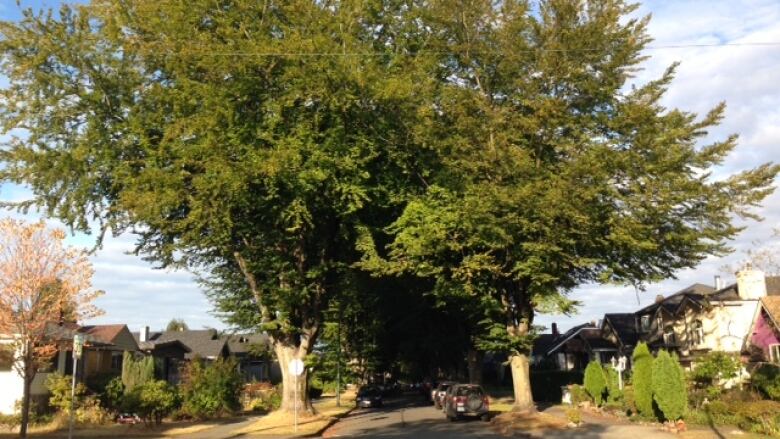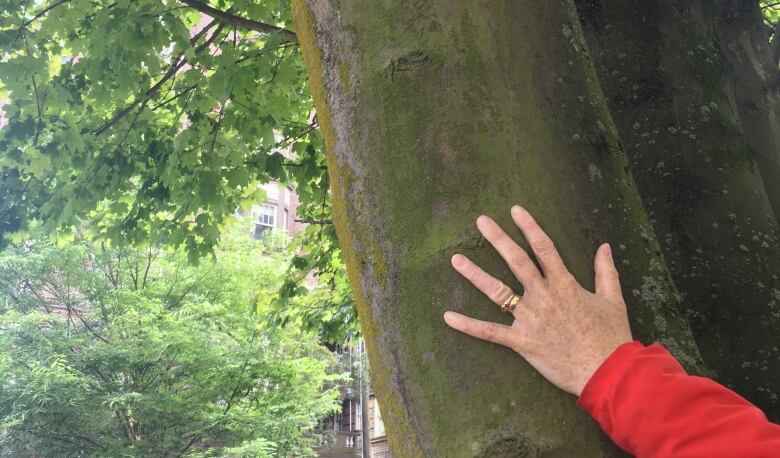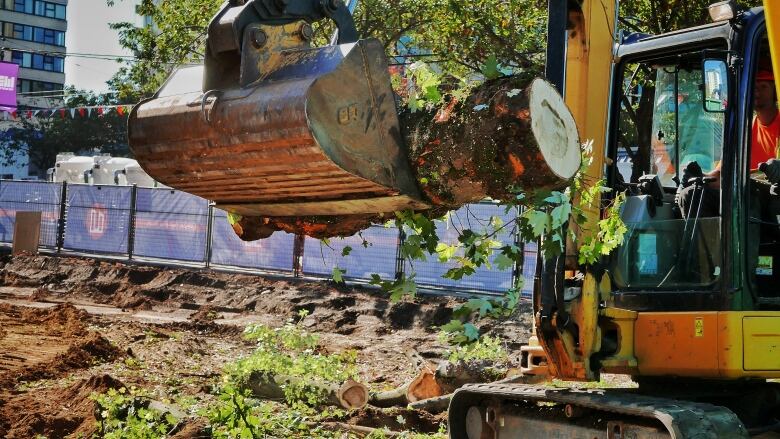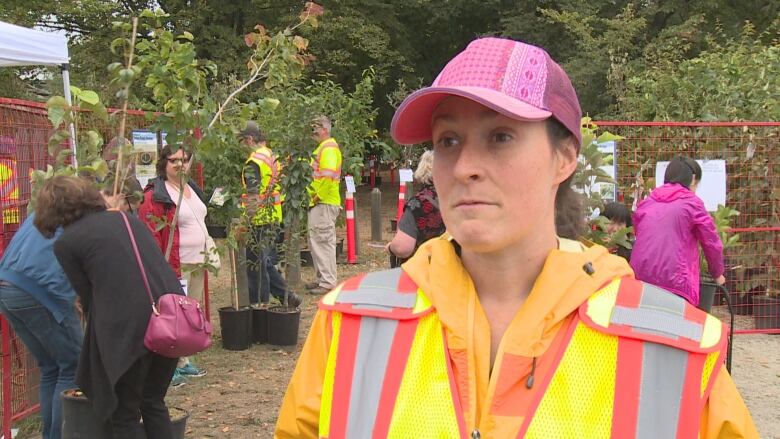Seeing Vancouver trees for the forest
Park Board asks residents to plant and nurture trees, but are people embracing stewardship?

All Casey Collins really wanted to learn was how to take care of the trees in the yard ofhis Vancouver house.
Collinsbecame a "citizen forester" through a now defunct program called TreeKeepers in 2014,an organization contracted by the Vancouver Park Board to get residents to learn about treesthrough planting and caring for them themselves.
It was this group that originally came up with the idea of selling discounted trees en masse, now known as the $10 tree sale.
Through TreeKeepers, Collins, 30, fostered a deep appreciation for Vancouver's urban forest and what it does to enhance life in the city.

"We have trees all around us here and there are basic things that anybody can do to help take care of them, which is really to our advantage, the advantage of the whole ecosystem," said Collins a doctoral student at the University of British Columbia.
Collins came to realize that nurturing and protecting city treescleans the air, absorbs storm water, provides habitat, stores carbon and improves the health and well-being of residents.
It's something the Vancouver Park Board wants others to learn as well, but tree advocates question whether it's doing enough to get the type of citizen stewardship it needs to meet its urban forest goals.
I had one die this year, despite being watered. I have another that did not grow any foliage, not sure if it is dead....I'll wait and see.
—@andyseealexEven though it now has a biologist and environmental stewardship coordinator on staff, the Park Board does not check on the health of the trees it sells, and does not directly offer the kind of tree stewardship education TreeKeepersdid.
"All those things that the city didn't have the capacity to get involved with," said David Tracey, a founding member of TreeKeepers and author of theVancouver Tree Book.
"I put in 70 hour weeks, sometimes, for two years to get that thing going."

After three years, Tracey says the contract for TreeKeepers was abruptly pulled and the Park Board took over the $10 tree sale.
"We made the Park Board look good," he said of the TreeKeepers' work. "It still kind of gets me, I'm still trying to figure out what happened."
While Vancouver residents continue to clamour for $10 trees, it's unclear how many surviveto maturity to expandthe city's canopy, the amount of leaf cover viewed from the air.
Vancouver's canopy cover lost ~25,000 trees in 20 years, mostly on private property. Leaves covering the city is 18% ,down from 23% in 1995.
—@ChadPawsonToronto's tree canopy cover is 27% versus Vancouver's 18%. TO also has counted all the trees on private property. https://t.co/E6QpyGfOPn
—@ChadPawsonTracey says the main focus of TreeKeepers was citizen engagement, not just a numbers game of getting trees in the ground.
For example it designated 'PoetTrees' where people could write versesabout their appreciation for the city's green sentinels.
"If you're going to build an urban forest properly, if you're going to have a healthy urban forest, you have to have people involved, not just the experts, but the residents," said Tracey.

The Park Board's biologist, Nick Page says TreeKeepers was a successfulmodel, but notes that it was a pilot.
"TreeKeeperswas always seen as a successful model but it was a bit of a trial," Pagesaid.
"What we learned is there were different approaches in other ways,how we could cut out the middleman and deliver some of that same program ourselves."
Pagewas hired in 2012 and says the Park Board has built on thework of TreeKeepers, with its own form of public engagement.
He says the city took over the $10 tree sale and has been hosting stewardship programs like public mass plantings and invasive species pulls.
'City of gardeners'
Page saidthe Park Board is making progress on persuadingresidents view Vancouver's trees as their responsibility.
"It is a city of gardeners," Page said. "Most people care for these things very much and are very interested."
Each year, the Park Board plants around 1,500 streettrees. The goal is to not just stick rootsin the ground, he said, but have crews engage nearby residents to help care for the trees.
In 2015, the Park Board hired an environmental stewardship coordinator, Dana McDonald, to run the tree sale and offer engagement programs.
And in May of this year, Park Board commissioners unanimously passed a motion for a tree guardian network that asks residents to join a network of people willing to water city-owned trees.
When you get a chance, please water our young https://t.co/pooSTGnPO6
pic.twitter.com/MZnBnNdRSq
—@ParkBoardTreeKeepers followed up on the $10 trees it sold by emailing a survey to buyers at intervals asking about the health of trees.
It was also planning to havecitizen foresters like Collins physicallycheck on the trees before its funding was pulled.
I think it's not only personally rewarding but does an important service to the whole community.- Casey Collins on caring for trees in Vancouver.
Meanwhile, Page says he wants to hear from residents who want to help.
"I think a threshold gets reached where people don't just see beautiful trees in a park but see this system of trees across the city, the overall urban forest," he said.
"It's pretty cool."
Since 2010, the city has planted 82,000 new trees. It still has another 68,000 to go to meet its 2020 target of 150,000.
Casey Collins hopes others will discover the value in learning about, and caring for trees in Vancouver.
"Whether that means taking care of trees on your own property or spending a couple hours once or twice a year to help other people take care of trees I think it's not only personally rewarding but does an important service to the whole community."
Scored a Belle de Nancy lilac tree from @parkboard #VanTrees sale at #Treelationship going! pic.twitter.com/wVJsfbyN39
—@JustinneRamirez











_(720p).jpg)


 OFFICIAL HD MUSIC VIDEO.jpg)
.jpg)



























































































